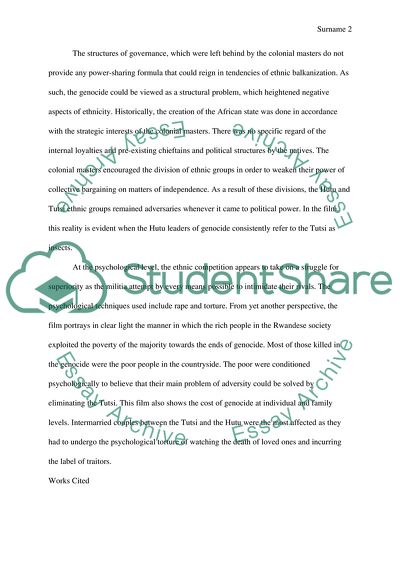Cite this document
(World Civilization: Analysis of The Hotel Rwanda Film Movie Review, n.d.)
World Civilization: Analysis of The Hotel Rwanda Film Movie Review. https://studentshare.org/history/1783540-world-civilizations
World Civilization: Analysis of The Hotel Rwanda Film Movie Review. https://studentshare.org/history/1783540-world-civilizations
(World Civilization: Analysis of The Hotel Rwanda Film Movie Review)
World Civilization: Analysis of The Hotel Rwanda Film Movie Review. https://studentshare.org/history/1783540-world-civilizations.
World Civilization: Analysis of The Hotel Rwanda Film Movie Review. https://studentshare.org/history/1783540-world-civilizations.
“World Civilization: Analysis of The Hotel Rwanda Film Movie Review”. https://studentshare.org/history/1783540-world-civilizations.


